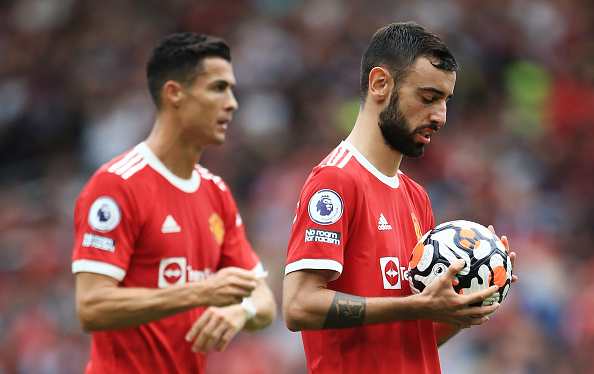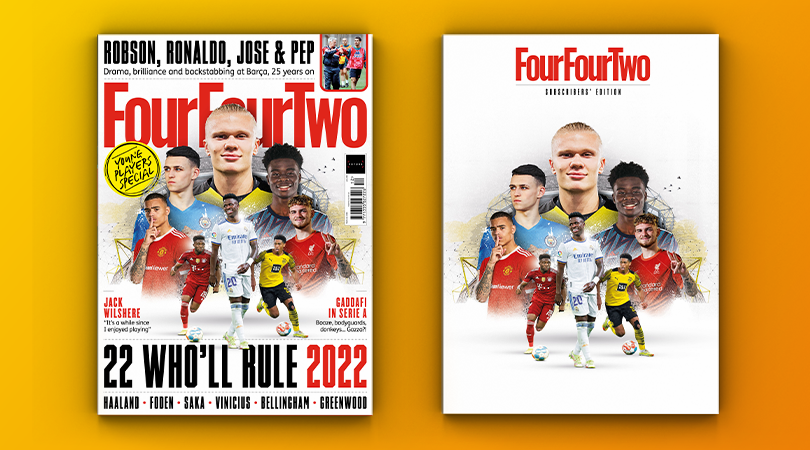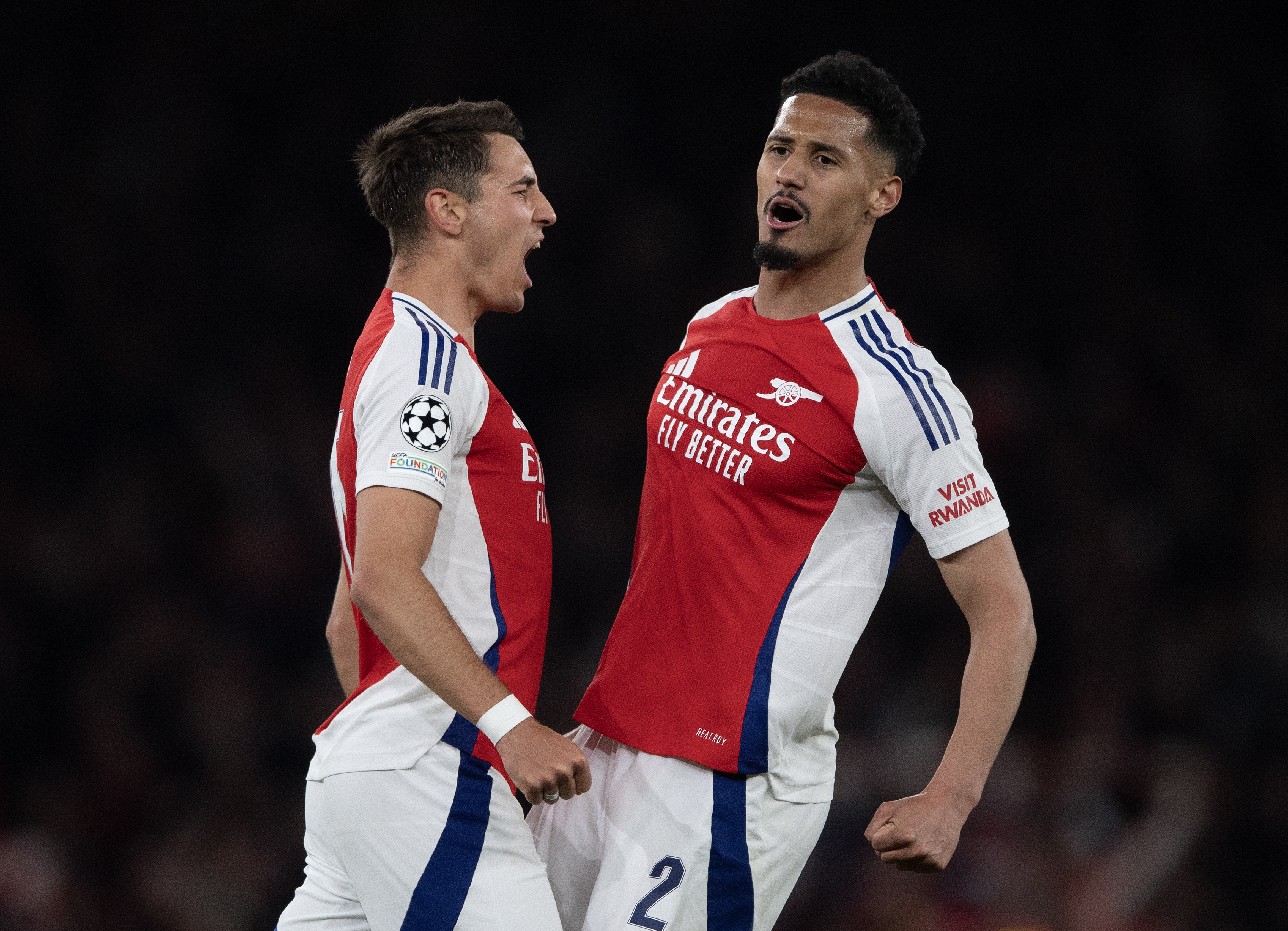Does Bruno Fernandes still have a clear role in this Manchester United team?
With Cristiano Ronaldo a guaranteed pick, his compatriot is struggling to produce his best form

“Agent Bruno?” wondered Bruno Fernandes. Not content with scoring and assisting at a remarkable rate, galvanising a depressed club and reviving Ole Gunnar Solskjaer’s reign at Manchester United, it transpired he had replaced Jorge Mendes as the most influential Portuguese intermediary in football.
BLACK FRIDAY Save 50% on a mag subscription as part of our Black Friday offer
Admittedly, Fernandes did not make the same claim for himself. He was one of those whose persuasive powers were called upon to secure Cristiano Ronaldo’s return to Old Trafford. Agent Fergie, Agent Ole and Agent Rio all played their parts. But if the Norwegian may question whether that worked out for him, so might the man who lost his billing as focal point of United’s attack, the top scorer and the indispensable starter.

There was something symbolic in the way Michael Carrick took over as caretaker manager and dropped Fernandes. He was not alone among United’s big names in underperforming but he carried the can. And if Fernandes’ response was immaculate, coming off the bench to inspire improvement against Villarreal, getting the assist for Jadon Sancho’s late goal, pressing his case for an immediate return to the team, yet the way his season has unravelled has mirrored United’s.
A scorer of goals in extraordinary numbers has gone 1072 minutes without mustering one. There was the brief, heady sense a galaxy of attacking stars would be unstoppable when Fernandes scored and Ronaldo got two on the latter’s second debut against Newcastle. But then came his startlingly bad, skied penalty against Aston Villa, his flirtation with a red card against Liverpool, the false dawn of a decent performance in a 3-4-1-2 formation at Tottenham and finally the unhappy ending at Watford, with Fernandes gesturing to the fans booing Solskjaer that the players were to blame.
The headline figure of Fernandes’ longest United goal drought can camouflage the way that some aspects of the United players’ numbers have held up even as the team’s form collapsed. Propelled by his Champions League exploits, Ronaldo’s goal tally is thoroughly respectable. Fernandes has eight assists since he last scored. View a highlights package of two exquisite pieces of creativity for Ronaldo goals, a diagonal pass against Young Boys of Bern and a backheel against Atalanta, and the temptation would be to assume they were combining brilliantly.
The broader evidence may be that each is often inconvenienced by the other’s presence. A reason for Fernandes’ relatively meagre goal return for Portugal – six in 40 caps, compared to a ratio approaching one every other game for Sporting Lisbon and United – is that Ronaldo is on spot-kick duty. Another is that he is a specialist No. 10 who feels a far inferior player in any other role. Portugal have generally played 4-3-3 in recent years. So did Real Madrid for Ronaldo’s final seasons there and Juventus for much of Ronaldo’s two Serie A-winning campaigns. He likes having more workers behind him, rather than company alongside him.
Get FourFourTwo Newsletter
The best features, fun and footballing quizzes, straight to your inbox every week.
In all probability, his ideal Portugal team would feature two Bernardo Silvas, providing scurrying and creativity in the No. 8 roles, rather than Fernandes as a No. 10. The latter, in turn, also prefers runners around him; rewind four months and it seemed Solskjaer’s ideal United attack might have Marcus Rashford and Jadon Sancho flanking Fernandes with Mason Greenwood ahead of him, everything going via him. Even as Fernandes showed another aspect to his game, running in behind defences in his opening-day treble against Leeds, it was in a side built around him.
If there is a way to prioritise both Ronaldo and Fernandes without hampering either, Solskjaer did not find it. Fernandes does not want a static centre-forward or Ronaldo a No. 10 who gets in his way. Twin shotaholics may both lament the number of efforts the other takes, and now Fernandes has not had an effort on target in the Premier League since September’s win at West Ham. Part of his initial success at Old Trafford stemmed from his willingness to become the pivotal figure, to assume responsibility. He looks a lesser player when relegated to a member of the supporting cast.
Which may in part explain why the number of elite clubs who scouted him at Sporting did not move. Another factor may be tactical. Very few teams base their gameplan around a pure No. 10 any more; in an era of 4-3-3 and 3-4-3, they feel an endangered species, a throwback to the 2000s.
When Fernandes was dropped on Tuesday, it was to accommodate the more versatile Donny van de Beek who, without starring, filled in various roles as United played a hybrid 4-3-3 and 4-4-2. As United appear to edge closer to Ralf Rangnick in their search for both an interim and a permanent manager, the trends in modern managerial thinking make it less likely their chosen appointment will share Solskjaer’s preference for 4-2-3-1 (with variants of 4-diamond-2 and 3-4-1-2 all involving a No. 10). It made Fernandes a unique figure just as his productivity made him an outlier.
But now, as Carrick’s bow indicates, these are uncertain times for the greatest United player of the Solskjaer regime.
Subscribe to FourFourTwo today and save 50% as part of our Black Friday offer.
Restock your kit bag with the best deals for footballers on Amazon right now
ALSO READ
LIST Football Manager 2022: All the FM22 wonderkids you'll need to sign
Richard Jolly also writes for the National, the Guardian, the Observer, the Straits Times, the Independent, Sporting Life, Football 365 and the Blizzard. He has written for the FourFourTwo website since 2018 and for the magazine in the 1990s and the 2020s, but not in between. He has covered 1500+ games and remembers a disturbing number of the 0-0 draws.

